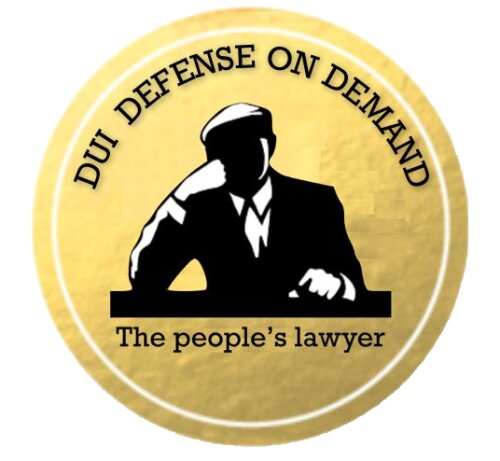Best Drug Crime Lawyers in Illinois
Share your needs with us, get contacted by law firms.
Free. Takes 2 min.
Or refine your search by selecting a city:
List of the best lawyers in Illinois, United States
About Drug Crime Law in Illinois, United States
Drug crime law in Illinois covers a wide range of criminal offenses related to controlled substances. These include the possession, manufacturing, sale, distribution, and trafficking of illegal drugs such as cocaine, heroin, methamphetamine, ecstasy, and unauthorized prescription medications. Illinois law also addresses the cultivation and distribution of cannabis, even though recent legislative changes have legalized certain cannabis activities under strict regulations. Drug crimes can result in severe legal penalties, including imprisonment, heavy fines, mandatory drug education programs, and long-term consequences for future employment, housing, and education opportunities. Drug offenses are prosecuted aggressively in Illinois, making it critical for anyone facing allegations to understand their rights and the complexities of the law.
Why You May Need a Lawyer
Legal trouble involving drugs can have life-changing consequences. You may need a lawyer if you are:
- Arrested or charged with drug possession, manufacturing, or distribution
- Investigated by law enforcement in relation to drug activities
- Facing allegations of possessing drug paraphernalia
- Involved in a vehicle stop where drugs were found
- Accused of drug-related activity in a school zone or protected area
- Eligible for drug diversion or alternative sentencing programs
- Subject to asset forfeiture due to alleged drug crimes
- A first-time offender seeking to minimize long-term effects
- Concerned about possible immigration consequences due to a drug arrest
- Unaware of your legal rights and unsure how to proceed
An experienced drug crime attorney can analyze your case, advise you of possible defenses, protect your rights, and advocate on your behalf for the best possible outcome.
Local Laws Overview
Illinois law classifies most drugs into Schedules, similar to federal guidelines, with the most dangerous drugs falling under Schedule I and II. The severity of penalties for drug crimes depends on several factors, including the type of drug, quantity, intent (possession versus intent to sell or distribute), presence of aggravating factors (such as proximity to a school), and prior criminal history.
Possession of small amounts of certain drugs may be charged as a misdemeanor, while possession of larger quantities, manufacturing, or trafficking can result in felony charges. Illinois has its own set of statutes, chiefly under the Illinois Controlled Substances Act and the Cannabis Control Act, which outline the specific offenses and penalties. While cannabis possession has been decriminalized under certain circumstances, violations outside of regulated use can still result in arrest and prosecution.
Illinois courts allow some first-time and non-violent offenders to enter diversion programs or undergo treatment as an alternative to incarceration. However, convictions for drug crimes often result in permanent criminal records, which can have a significant negative impact on your life.
Frequently Asked Questions
What is the difference between possession and possession with intent to deliver?
Possession refers to having illegal drugs for personal use. Possession with intent to deliver means you are accused of planning to sell or distribute drugs, often based on the amount found or presence of packaging materials, scales, or large sums of cash. The latter charge carries much harsher penalties.
Are all drug crimes in Illinois felonies?
No, not all drug crimes are felonies. Simple possession of small amounts of certain substances (such as marijuana, when over the legal limit) may be charged as misdemeanors. However, most offenses involving harder drugs or larger quantities are felonies.
Has Illinois legalized marijuana for recreational use?
Yes, Illinois has legalized the possession and private use of small amounts of marijuana by adults 21 and older. However, exceeding the possession limit, unlicensed sales, or using in public places can still lead to criminal charges.
What are some common defenses to drug charges?
Defenses may include lack of knowledge, illegal search and seizure, lack of possession, entrapment, or proving the substance was legal. An attorney can help identify the best defense based on the facts of your case.
Can my case be dismissed if the police did not have a search warrant?
It is possible, yes. If law enforcement violates your Fourth Amendment rights by conducting an illegal search and seizure, evidence gathered may be suppressed and charges could be dropped, but each case is unique.
Will a drug conviction affect my job or schooling?
Yes, a drug conviction can impact employment opportunities, educational prospects, eligibility for professional licenses, and even result in the loss of federal student aid.
What is a drug diversion program?
A drug diversion program offers eligible offenders the chance to complete rehabilitation, education, or community service instead of serving jail time, often resulting in reduced or dismissed charges upon completion.
How do prior offenses affect my case?
Prior drug or other criminal convictions generally result in more serious charges and enhanced penalties if convicted again, making expert legal help even more crucial.
Can non-U.S. citizens be deported for drug crimes?
Yes, many drug convictions can result in deportation, denial of naturalization, or other immigration consequences for non-citizens. Immediate legal counsel is strongly recommended.
Can police confiscate my property in a drug case?
Yes, Illinois law allows for asset forfeiture of money, vehicles, or other property believed to be connected to drug crimes. Legal intervention can help contest the seizure of assets.
Additional Resources
If you or someone you know is facing drug charges in Illinois, these resources may offer support and information:
- Illinois State Bar Association - for finding attorneys and general legal information
- Illinois Department of Human Services - information on treatment and recovery
- Illinois Legal Aid Online - self-help resources for understanding drug law
- Local county public defender's office - legal representation for those who qualify
- Substance Abuse and Mental Health Services Administration (SAMHSA) - national treatment hotline and services
Next Steps
If you are facing drug charges or believe you may be under investigation, act quickly to safeguard your future. Here are the steps you should consider:
- Do not make any statements to police or investigators without legal counsel present
- Contact an experienced Illinois criminal defense attorney who specializes in drug offenses
- Prepare any relevant documents, case information, or correspondence for your attorney
- Discuss your eligibility for diversion or alternative sentencing, if applicable
- Follow your lawyer's advice and refrain from discussing your case with anyone but your legal representative
Remember, every drug case is different. The sooner you secure professional legal guidance, the greater your chances of protecting your rights and reaching the most favorable resolution possible.
Lawzana helps you find the best lawyers and law firms in Illinois through a curated and pre-screened list of qualified legal professionals. Our platform offers rankings and detailed profiles of attorneys and law firms, allowing you to compare based on practice areas, including Drug Crime, experience, and client feedback.
Each profile includes a description of the firm's areas of practice, client reviews, team members and partners, year of establishment, spoken languages, office locations, contact information, social media presence, and any published articles or resources. Most firms on our platform speak English and are experienced in both local and international legal matters.
Get a quote from top-rated law firms in Illinois, United States — quickly, securely, and without unnecessary hassle.
Disclaimer:
The information provided on this page is for general informational purposes only and does not constitute legal advice. While we strive to ensure the accuracy and relevance of the content, legal information may change over time, and interpretations of the law can vary. You should always consult with a qualified legal professional for advice specific to your situation.
We disclaim all liability for actions taken or not taken based on the content of this page. If you believe any information is incorrect or outdated, please contact us, and we will review and update it where appropriate.
Browse drug crime law firms by city in Illinois
Refine your search by selecting a city.
















